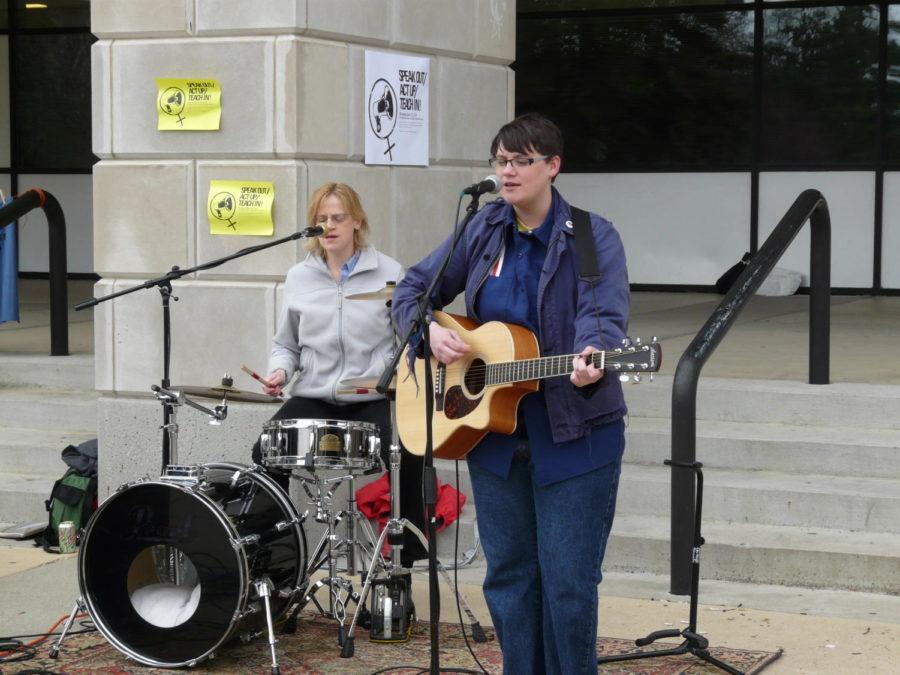Women’s and Gender Studies program celebrates 40th anniversary
A band plays during a Women’s Studies Teach-in in 200.
September 11, 2017
On Sept. 19, the Women’s and Gender Studies (WGS) Program will kick off its first event for their 40th anniversary celebration at Morrill Hall from 5:30 to 7 p.m.
In 1977, the Women’s and Gender Studies program began after the university saw a growing demand from students to learn more about women. The effort to form WGS took over a decade.
Since then, the program has had its fair share of changes. In 2011, it added gender studies to its name.
“A lot of programs similar to this in other universities are adding sexuality to their name,” said Ann Oberhauser, director of WGS. “That might be the next kind of broadening of the field.”
The WGS program is conscious of intersectionality after seeing its start during second-wave feminism in the 1970s.
“We’re still fighting to improve the situation and the status for women in academia, in the workplace, in the political arena, in representation in media,” Oberhauser said.
Navigating society and social issues looks different for everyone, according to Oberhauser.
“Oppressive forces work differently based on who you are,” said Michael Goebel, lecturer in WGS.
Women of color, for instance, have different barriers to overcome than a white woman might.
“It’s not just about gender anymore,” said Alissa Stoehr, lecturer in WGS. “Feminism is not just a white woman’s issue.”
Even those who may not believe they are impacted by gender are, according to Stoehr.
“Gender does impact white, cisgender males. Gender does impact people that identify LGBTQIA+. Gender does impact women of color who identify as being disabled,” Stoehr said. “When we talk about women’s and gender’s studies, we’re also talking about intersectionality, sexuality and all these different things.”
In that way, Stoehr said that WGS can be considered an umbrella program of sorts.
“Every voice is important,” Stoehr said.
With its focus on intersectional identities, the WGS Program has seen the addition of queer studies and more in past years.
“We didn’t have Intro to Lesbian Studies and Intro to Queer Studies ten years ago,” Stoehr said. “Now we do. We are attracting quality studies [and] quality educators to teach these classes.”
In its 40 years, the Women’s and Gender Studies Program has grown from 10 faculty members to around 60, including associate faculty members. Currently, there are 55 students within the program. Regardless of what they want to do with their degree, Stoehr is confident that they are creating conversations around what can be complicated topics.
Recently, the Women’s and Gender Studies program added “Gender Studies” officially to their major. Those graduating from the program will now have the full name rather than only “Women’s Studies” on their diploma.
“We’ve come so far, but also not as far as we should have in the last 40 years,” said lecturer Michael Goebel. “Celebrating the 40th is a chance to look back and understand that history through a new kind of lens.”
Throughout the year, the WGS Program will be hosting a variety of events. Oberhauser hopes to gather all ten former directors to host a panel. The Women’s and Gender Studies Program’s seminar series offers four lectures per semester, with its first on Wednesday.







